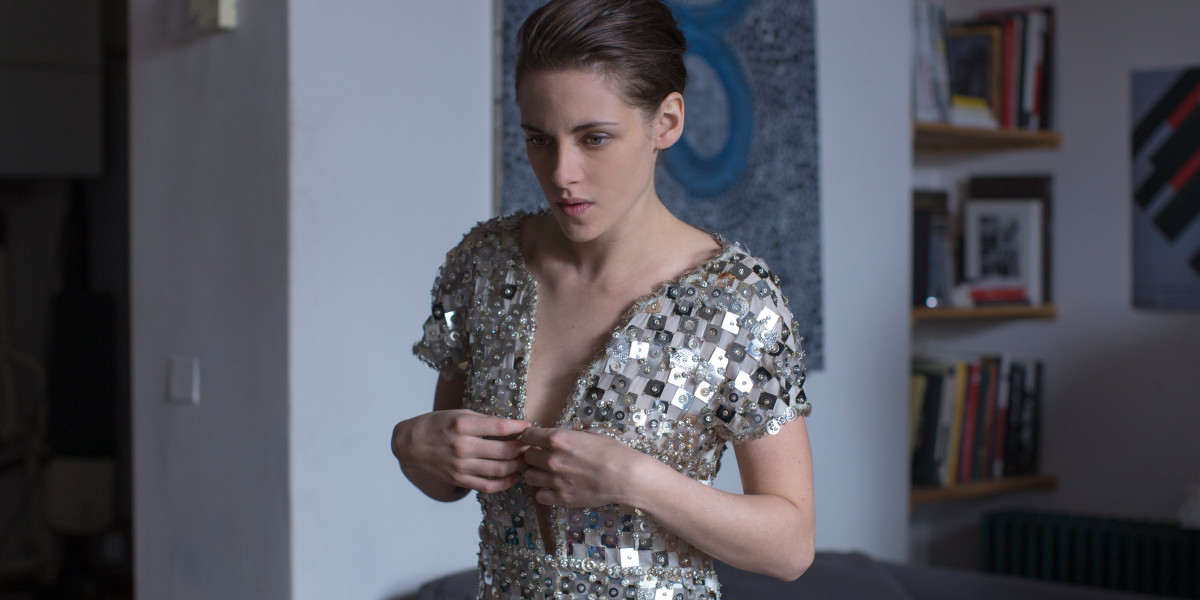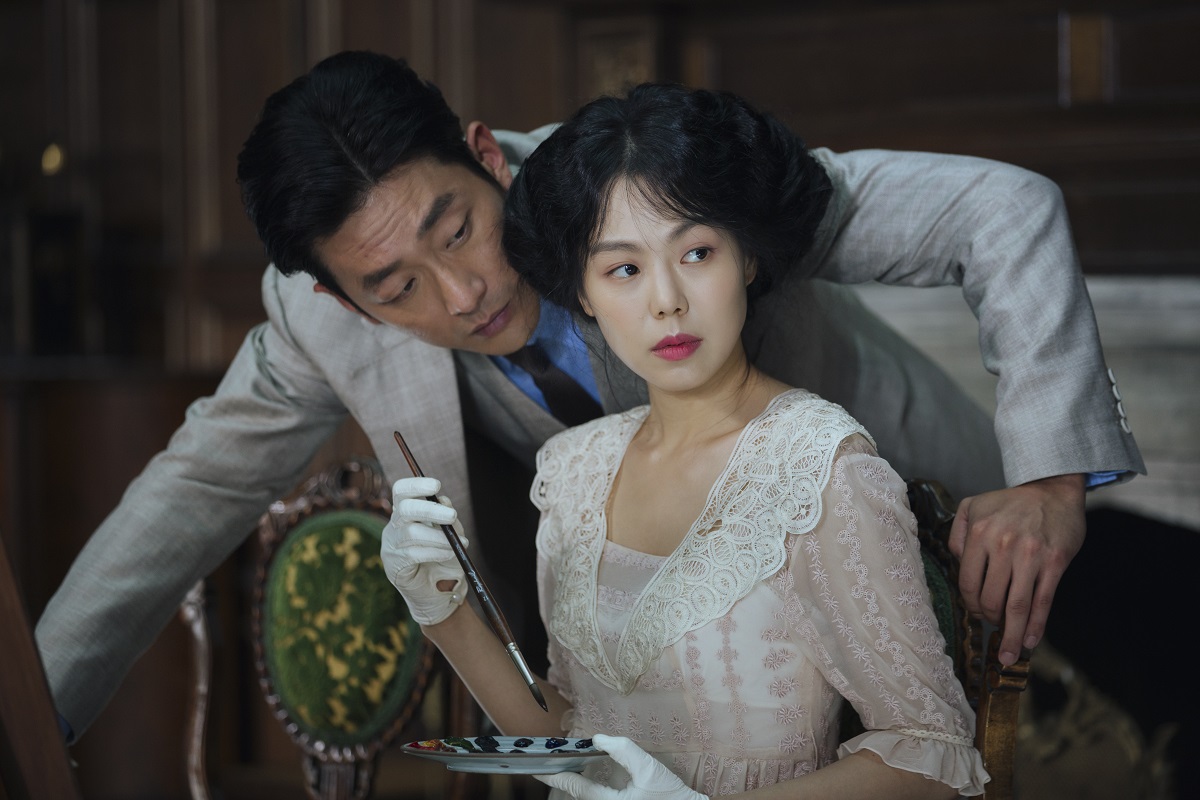One of the most enjoyable elements of the Toronto
International Film Festival is being allowed the opportunity to finally see the
films that earned all the buzz at the Cannes Film Festival four months earlier.
Most of them are being shown to audiences for only the second time, and, well,
Cannes reactions can often be different from those in North America. This year’s
Cannes-to-Toronto cinematic tunnel was incredibly crowded with promises of
quality, including at least a half-dozen films that I greatly wanted to see but
couldn’t get to, including “Toni Erdmann,” “Elle,” “Julieta” and “Things to
Come,” although we’ll have more chances to cover Cannes films at the upcoming
New York and Chicago Film Festivals.
What I did see from Cannes was largely phenomenal. I’ve already written about how much I adore “Loving,” Jeff Nichols’ second great
film of 2016 (after “Midnight Special”), and there were three other Cannes
imports that I’d call among the best of TIFF as well. Let’s start at the top.
Park Chan-wook’s fantastic “The Handmaiden” is a difficult film to review for two reasons.
First, it’s the kind of movie that’s best experienced as unspoiled as possible.
Even the trailers are giving too much away. Much has been made of the film’s
explicit sexuality but I was surprised at the twisting, turning narrative of a
story that plays with time and audience expectations. Second, it’s such a lush
visual experience that words don’t really do it justice. You just need to see
it.
Park has taken Sarah Waters’ Victorian-era bestseller Fingersmith and transplanted it to
Japanese-occupied Korea in the 1930s. The result is a visually sumptuous,
erotic, thrilling film about betrayal, culture, eroticism and class. It is such
a stunningly confident piece of filmmaking on every level, always finding
sophisticated ways to surprise viewers and keep them guessing.
Kim Tae-ri stars as Sook-Hee, a Korean thief picked by a grafter
named Fujiwara (Ha Jung-woo) to run the con of their lifetimes. A wealthy
Japanese woman named Lady Hideko (Kim Min-hee) needs a new handmaiden. Sookee
will get the job, convince the woman to marry Fujiwara, who will then commit
the heiress and take her fortune. Sookee enters a sexually-charged atmosphere
almost immediately as we learn that Sookee’s twisted uncle is a collector of
erotic fiction, and he forces Hideko to read the novels to wealthy men in the
area. Sookee becomes Hideko’s only confidante, and eventually her lover. Can
they turn the tables on Fujiwara and Hideko’s uncle? Are they being truly
honest with each other? Is anyone?
“The Handmaiden” is a glorious game of master-and-servant.
Park plays with our knowledge of who’s in charge and who’s being led by the
situation at hand, before changing the order, again and again. By the end, you’re
dizzy at the twisting and turning, but also grounded in a story that is
ultimately about taking control and defying the patriarchy that sees women as
erotic possessions. Park’s work here is visually stunning, but he
also directs some of the best performances in his filmography. This is a movie you’ll hear a lot more about this fall.

The winner of the Best Director prize at Cannes, Cristian
Mungiu’s pitch-black “Graduation”
has echoes Michael Haneke’s dramas in the way it captures the futility
of the randomness of a life beyond our control. It is about a man who sees a chance
to try and correct an injustice done to his daughter, but doesn’t realize that
some fences can’t be mended, and that by trying to move faster to escape
quicksand only makes you sink more quickly.
Eliza (Maria-Victoria Dragus) is a great student, ready to
take her exams to move on to the next chapter of almost-certain academic
success. After her father Romeo (Adrian Titieni) drops her off for school on
the day before her tests, a man grabs her and sexually assaults her. Partially
because he feels responsible for where he dropped her off—Romeo was in a hurry
to get to his mistress—but also because he simply doesn’t believe that one
incident should derail a life, however horrible, Romeo decides to pull some
strings to ensure that Eliza’s tests go well.
Mungiu purposefully opens his film with a rock being thrown
through Romeo’s window. We don’t see the hurler, and Romeo runs down his stairs
and out his front door, chasing a ghost. It’s a symbolic set-up for the entire
film. Romeo keeps running harder, trying to find justice and returning his
family to normalcy, but he can’t quite catch that which he is chasing. “Graduation”
is talky but never boring. Mungiu is masterful in his direction, keeping the
characters grounded while sending a greater message about the futility of looking
for fairness in an unfair world.

Andrea Arnold’s “American
Honey” was one of the most divisive films both at Cannes and at this year’s
Toronto Film Festival. I’ll write much more in my full review in two weeks when
it opens, but I’m firmly in this film’s camp. I adore Arnold’s dreamlike view
of the middle of America and the youth that dot its landscape. Her saga of a
young woman (newcomer Sasha Lane) traveling the heartland of the country in a
van full of partying teenagers is a joyous view of America filtered through
its pop culture as seen by a European filmmaker. There’s a reason that Arnold
uses pop music from front to back, including hits by Rihanna, Lady Antebellum
and E-40—this is how so many teenagers communicate and how they dream. They are
the characters in the song American Honey—“Couldn’t
wait to get goin’ but wasn’t quite ready to leave.” And Arnold’s vision, shot
in beautiful 4:3, which keeps us right in the action instead of the more
lyrical result that would have resulted with widescreen, is a poetic
interpretation of the country—oil fields at night, rich men cooking steaks in
cowboy hats, teenage girls dancing at a birthday party, a trucker listening to
The Boss. This is America—youthful,
joyous, naïve, stupid, horny, jealous and always moving.

Kristen Stewart follows her career-best performance in
Olivier Assayas’ “Clouds of Sils Maria” with another collaboration with the
filmmaker that results in arguably an even-better turn. She’s phenomenal in “Personal Shopper,” an
intriguing-but-sometimes-frustrating supernatural drama that’s more about how
we process grief than it is about things that go bump in the night.
Stewart plays Maureen, a personal shopper for an
ultra-wealthy famous person who is too busy at events and photo shoots to shop
for clothes for herself. While Maureen is shopping for clothes she couldn’t
possibly afford, she has another project occupying her mind and heart. Her twin
brother Lewis recently passed away, and he has promised that he will
communicate with her from the afterlife. Lewis was, and Maureen is, a medium.
So Assayas cuts scenes of Maureen trying on expensive clothes with scenes of
her wandering her family home trying to speak to her dead brother. The blend
doesn’t always work but Stewart makes both halves of the film equally
convincing, especially the one in which she captures something pure about how
we process death. She so longs for some sign from her brother, not to prove the
afterlife—she’s a medium, she believes fully in the other side—but to heal her
own pain. I wish I liked Assayas’ entire film more than I do, but Stewart is so
good here that she makes the film’s flaws easy to overlook.

Jean-Pierre and Luc Dardenne are two of our best filmmakers,
especially when it comes to realistic, morally-challenging looks at people on
the fringe of society. Films like “La Promesse,” “Rosetta,” “The Son” and “Two
Days, One Night” are must-sees, which makes my frustrated response to their latest,
“The Unknown Girl,” all the more
surprising. Reportedly cut by eight minutes from the Cannes version, I’m eager to
see the longer take on this story, because I found this one hard to believe.
The Dardennes are so good at character, place and realism that the climax of
their latest is jarring, given how much I don’t believe it. I think the problem
is that the Dardennes are masters at drama, but not really attuned to the beats
of a mystery. This one gets more plot-heavy than is typical for their work,
pulling further away from that which I believe really interests them as
filmmakers.
The set-up is undeniably fantastic. Dr. Jenny Davin (Adèle
Haenel) is working late at a medical clinic on the outskirts of Liege. She’s
about to ready to move on—not just for that long day to end but to a better
job. She’s closing out for the night with her colleague when the bell rings.
They should have closed an hour ago. She doesn’t answer the door. The next
morning, she learns that the woman who rang that bell was found dead. She’s a
Jane Doe. No one knows who she is. All they know is that if Jenny had answered
the door, she’d be alive. But who can really blame her for not answering every
call? Jenny herself becomes obsessed with figuring out who the woman was and
how she died, turning much of “The Unknown Girl” into a procedural. The moral
core of the Dardennes’ film is a fascinating one, especially as Jenny starts to
realize that this community needs her beyond just this specific case, but the
film in this cut drifts its way to a too-neat conclusion. Maybe the longer cut
will work better for me, maybe not.












